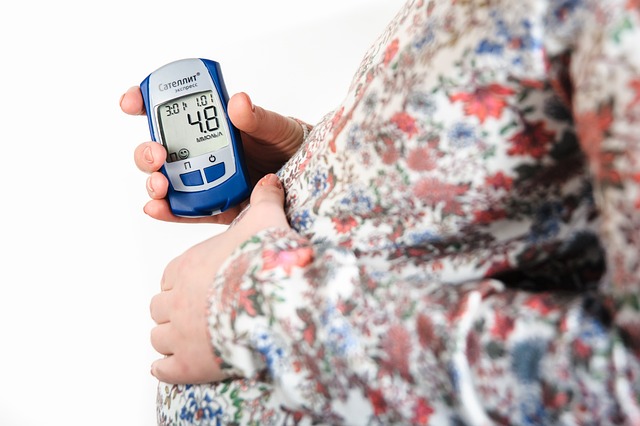Through this article we try to provide a diet plan for women with gestational diabetes . And about the amount of carbohydrates in some food items that are commonly eaten on a daily basis.
pregnancy
- “The period of development in the womb from conception to birth.”
- "Aries".
Gestational diabetes is diabetes that affects women during the late stages of pregnancy, usually from 24 to 28 weeks. The human body takes the food we eat and digests it. Digested food is absorbed into the bloodstream in the form of glucose. With an increase in glucose, the pancreas releases insulin.
Diabetes - what happens
Insulin is like the key that unlocks the cells so they can use up the glucose in the blood. In diabetes, insulin is produced less or does not open the cells to accept glucose. Because of the increased hormonal activity, pregnant women may need higher levels of insulin to maintain a normal blood sugar level. Some pregnant women are unable to produce these higher levels, and so blood glucose levels begin to rise.
The problem with this during pregnancy is that the baby is getting more glucose than normal and the results of this are listed below:
- The baby will grow up and it may lead to difficulties during childbirth.
- For a short time after birth, the baby will produce too much insulin and blood glucose levels may drop too low.
- The child may have breathing difficulties.
- This condition goes away after pregnancy because the need for higher levels of insulin goes away.
Meal plan for diabetes during pregnancy
Women with diabetes during pregnancy are required to follow a carefully structured meal plan.
- Eat small, frequent meals and plenty of water.
- The diet should include 3 meals and 3 snacks.
- The food they eat should be high in fiber and foods lower in sugar such as wholegrain breads and beans, fresh fruits and vegetables.
- Stay away from chocolate, sweets and cakes. These items provide a large amount of glucose from a very small volume and increase blood sugar levels very quickly.
- Also avoid fruit juices, which contain a lot of added sugar
- And beware of saturated fats in your diet such as butter, whole milk, dairy products and other animal fats.
Remember, the idea is to eat a well-balanced meal that is lower in carbs but doesn't completely eliminate your sugar intake. In fact, it would be very dangerous to do so because carbohydrates are absolutely essential for energy for you and your baby!
Here is the meal plan:
- Breakfast - 30 grams of carbohydrates, no amount of protein and moderate fat.
- Breakfast - 30 grams of carbohydrates, no amount of protein and moderate fat.
- Brunch Snack - 30 grams of carbohydrates, any amount of protein and moderate fat.
- Lunch - 45 grams of carbohydrates, any amount of protein and moderate fat.
- Evening snack - 30 grams of carbohydrates, any amount of protein and moderate fat.
- Dinner - 45 grams of carbohydrates, as much protein, moderately fat.
- Late night snack - 30 grams of carbohydrates, any amount of protein and moderate fat.
- Evening snack - 30 grams of carbohydrates, any amount of protein and moderate fat.
- Dinner - 45 grams of carbohydrates, as much protein, moderately fat.
- Late night snack - 30 grams of carbohydrates, any amount of protein and moderate fat.
Leave at least 2 hours between meals (usually test for sugars 2 hours after meal start time). The idea is to balance carbs with protein. Protein takes longer to digest and therefore feels more satiating.
advice:
Eating eggs (scrambled or even an omelette) with two slices of bread and a glass of milk gave better results than without. Similarly for lunch with chapati, one can eat extra chapati when eggs are added to the lunch menu. Eggs here act as an exclusive source of protein, unlike chickpeas or lentils which must be considered not only as a source of protein but also as carbohydrates.
Tip: If you eat more vegetables and protein, you may avoid eating fewer carbs. Remember to drink plenty of water.
Tip: Burn calories by taking slow, regular walks.
Tip: Avoid stress and anxiety. Relax and don't stress yourself out.
That's all for today. If you feel something useful, please share this with your loved ones, and don't forget to reveal your thoughts in the comment box. Or if you have any cool ideas or any questions, don't forget to share by commenting. Until then, be happy, keep smiling, keep asking questions and please keep reading my articles. See you in the next article.

Comments
Post a Comment